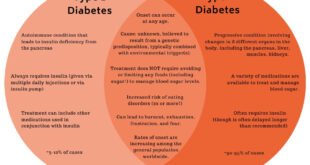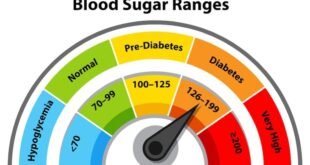Blood sugar, or blood glucose, simply the name given for the presence of glucose in the bloodstream by way of a concentration. Glucose is a sugar that serves as the principal energy source for the body’s cells and is derived from the foods we eat, especially carbohydrates.
How Does Blood Sugar Work?
When you eat, carbohydrates are digested, converted to glucose, and released into the bloodstream. The level of glucose in the blood is controlled by a hormone called insulin. Insulin is produced by the pancreas, and it plays an important role in cells’ absorption of glucose for energy processes or, when that energy isn’t immediately needed, for future use. This balance between glucose intake, insulin production from the pancreas, and its eventual utilization by the cells is vitally important for steady blood sugar levels.
Blood Sugar-The Importance of Regular Levels
For maintaining good health, a relatively stable blood glucose level is vital. Abnormally high or low blood sugar levels have been related to a number of health issues:
High blood sugar (hyperglycemia): Hyperglycemia is when there is too much glucose in the blood, which usually occurs when the body does not produce enough insulin or when insulin becomes ineffective. Chronic hyperglycemia can eventually lead to diabetes, heart disease, nerve damage, and other complications.
Low blood sugar (hypoglycemia): Hypoglycemia occurs when there is too little glucose in the blood due to excessive doses of insulin or postponed meals. Symptoms vary, but may include shakiness, confusion, dizziness, and loss of consciousness.
Blood Sugar Measurement
Blood sugar levels are normally measured in milligrams of glucose per deciliter of blood (mg/dL). The following are common blood sugar ranges:
Fasting blood sugar: 70-99 mg/dL normal, between 100 and 125 mg/dL prediabetes, and above 126 mg/dL diabetes : Less than 140 mg/dL normal, between 140 and 199 mg/dL prediabetes, and above 200 mg/dL diabetes.
This mechanism that manages blood sugar levels in the body is fit for human beings.
Balanced Diet: Eating a diet rich in whole grains, lean proteins, healthy fats, fruits, and vegetables while never letting oneself become addicted to sugar and refined carbohydrates will help achieve and maintain normal blood sugar levels.
Regular Exercise: Physical activity increases insulin sensitivity and glucose absorption into cells and helps blood sugar control.
Medication: Some individuals with diabetes may need medical or insulin treatment in order to bring their blood sugar levels down.
Monitoring: Monitor your blood sugars regularly, so that you may know how your body needs to be treated to either adjust your lifestyle or your treatment plan.
Hydration: Hydrate plenty of water for optimum blood sugar levels and overall health and wellbeing.
People need to understand how blood sugar can be managed for energy maintenance, the prevention of the risk of chronic diseases, and the promotion of good health. Experience-based lifestyle adjustment habits and monitoring health will assist in maintaining blood sugar levels within the acceptable limits.
 Kolnest.com – Know the Signs. Change the Future. Entertainments, Gadgets, Business, News, Articles, Love, Travel, Heallth
Kolnest.com – Know the Signs. Change the Future. Entertainments, Gadgets, Business, News, Articles, Love, Travel, Heallth






